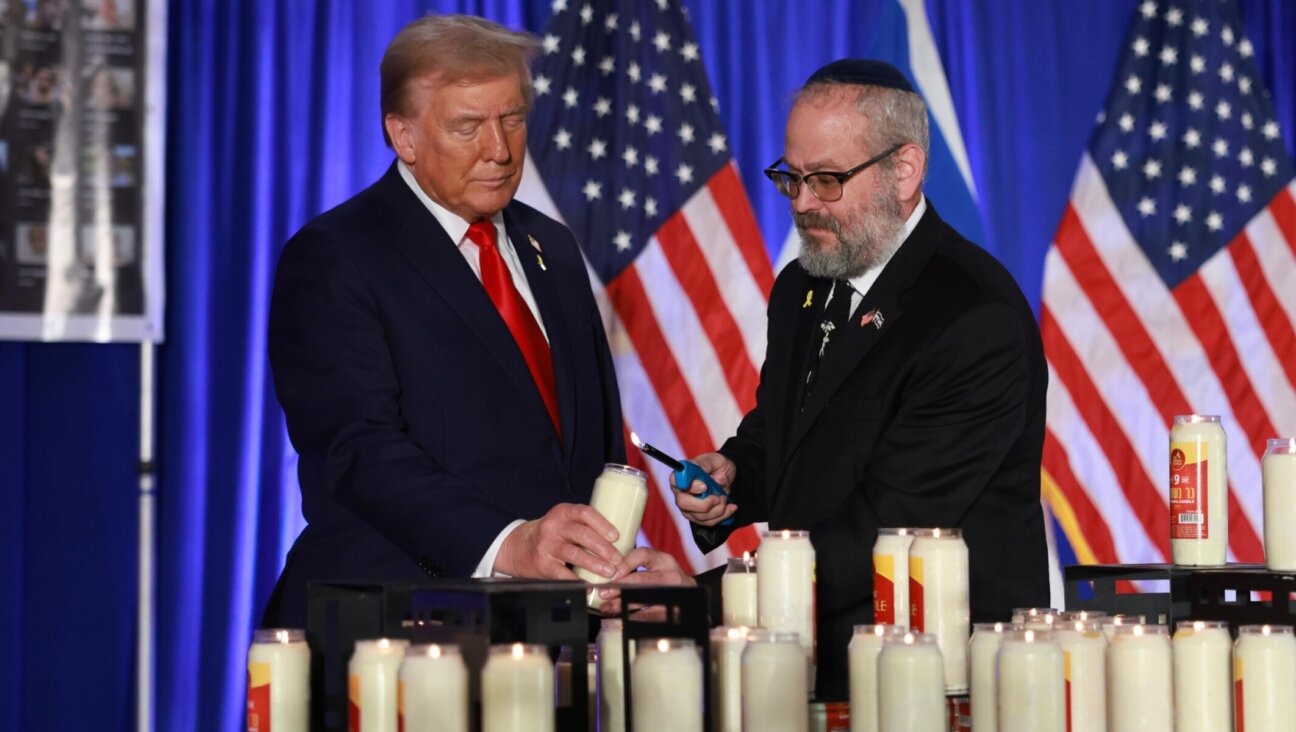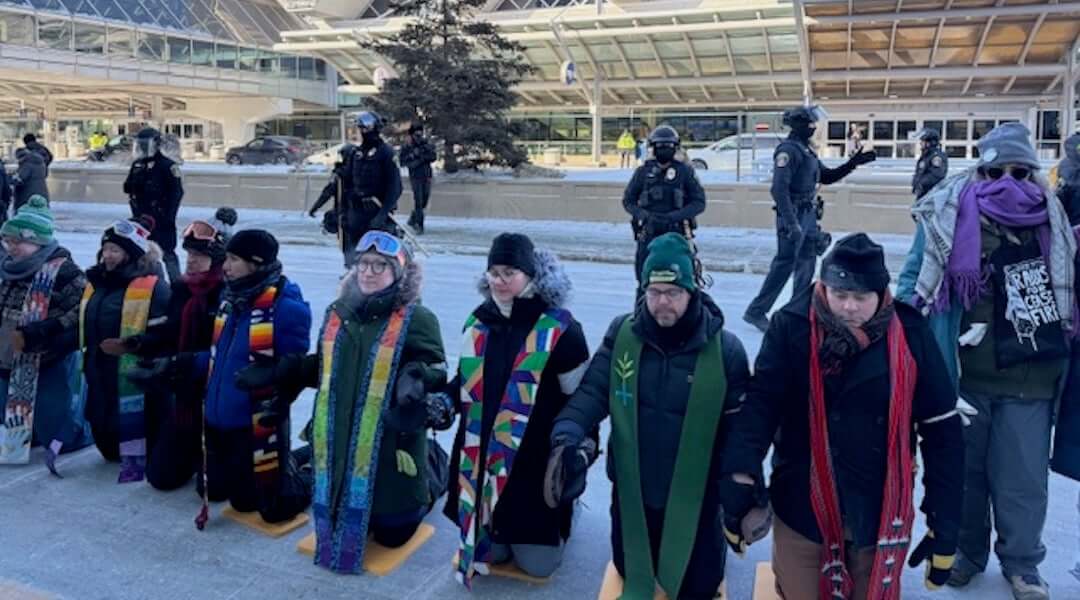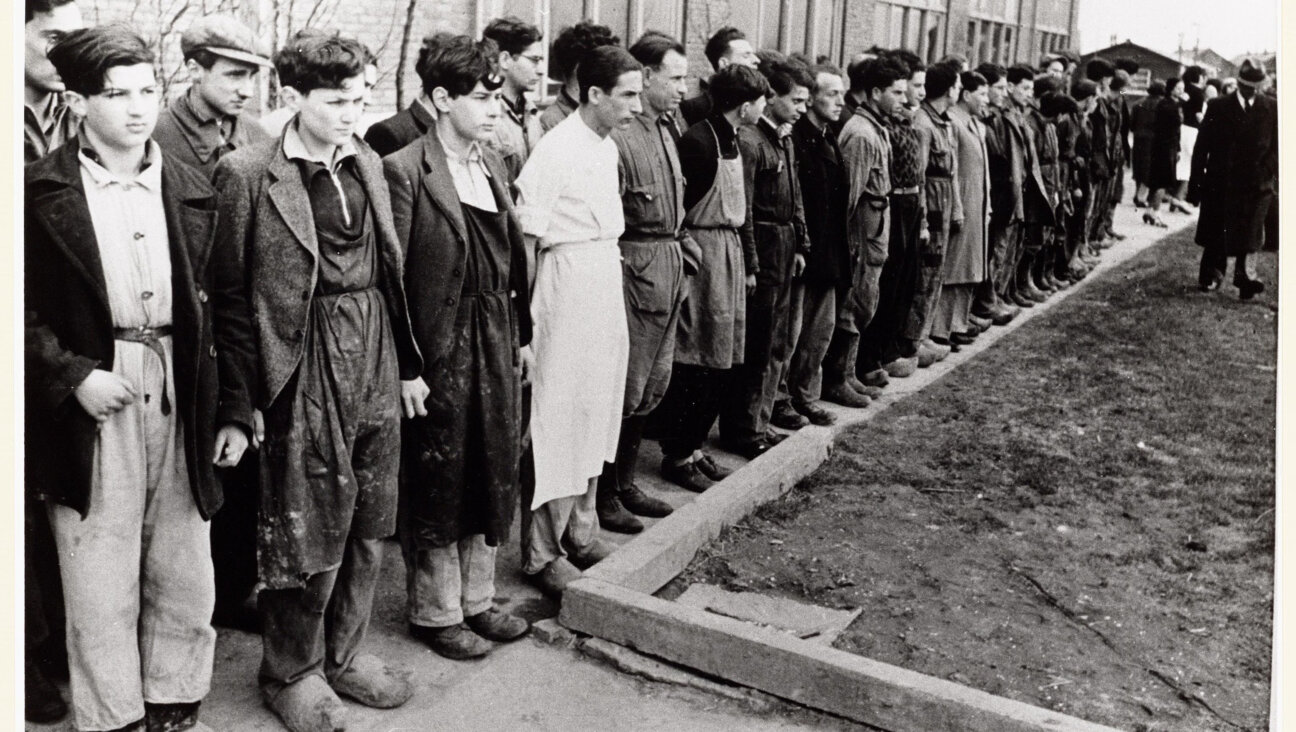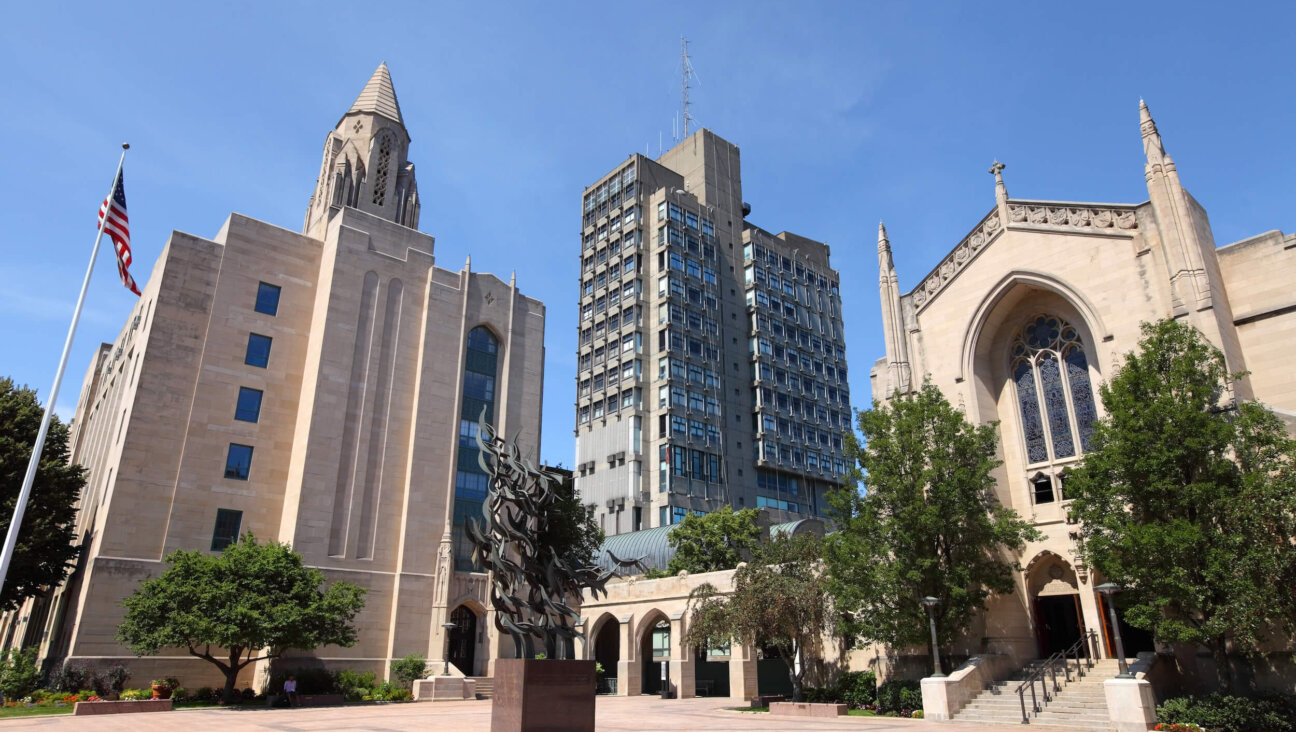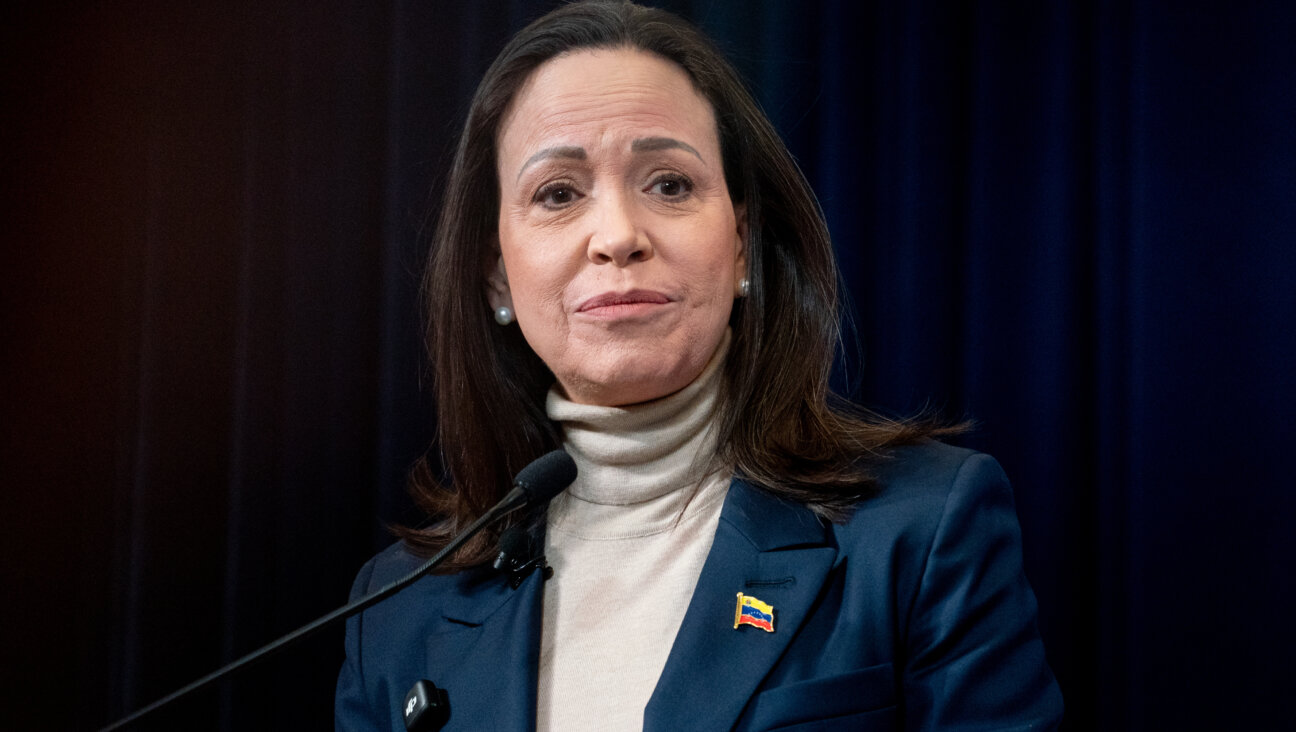Reuven Rivlin Hosts Jerusalem Meeting Over Mosque Noise Bill

Whose City? Violence flared on the Temple Mount as Israelis celebrate — and Palestinians mourn — the Israeli seizure of East Jerusalem. Image by getty images
JERUSALEM — President Reuven Rivlin of Israel hosted a meeting of Jewish and Muslim leaders in Jerusalem in the wake of public debate over a bill that would mute mosques’ loudspeakers.
“Jerusalem has always brought together the various voices, the Jewish prayers with the muezzin’s call to prayer along with the church bells. I am the son of one who translated the Quran and observed the Jewish commandments, and I recognize the need to tread a fine line,” Rivlin told the meeting participants at his residence.”
The president added: “It would be a shame that a law should be born which touches on the issue of freedom of faith of a specific group among us. Perhaps the voices heard today can be used to pave the way.”
The so-called muezzin bill would limit the volume of the muezzin’s call to prayer and the loudspeakers of all religious institutions during the day and silence them at night. The Knesset is scheduled to vote Wednesday on the measure.
The call to prayer comes from a minaret of the mosque five times a day, including very early in the morning. In modern times, the mosques use loudspeakers to assist in making the call.
Haredi Orthodox lawmakers have opposed the bill, fearing it would also prevent the siren that sounds in many communities to herald the start of the Jewish Sabbath.
The chairman of the Joint Arab List party, Ayman Odeh, has called the measure “racist” and “populist,” and Arab lawmakers have vowed to fight it. The Palestinian Authority has threatened to turn to the international community if the bill becomes law.
At Monday’s meeting, Rabbi Aryeh Stern, the Ashkenazi chief rabbi of Jerusalem, suggested a “joint call for dialogue, which should be issued by the highest Jewish and Muslim religious leadership in the country.” Such a call, he said, could stop the legislation and deal directly with the places where the call to prayer’s volume is an issue.
The president of the Islamic Sharia Court, Sheikh Abdel al-Hakim Samara, said the threat of the law causes Muslims to feel that “our freedoms are vulnerable.”
He added: “Solutions can be achieved even without the threat of the law looming over our heads. We all agree there is a need to lower the volume in problematic areas and we will act to ensure this, regardless of the law.”

